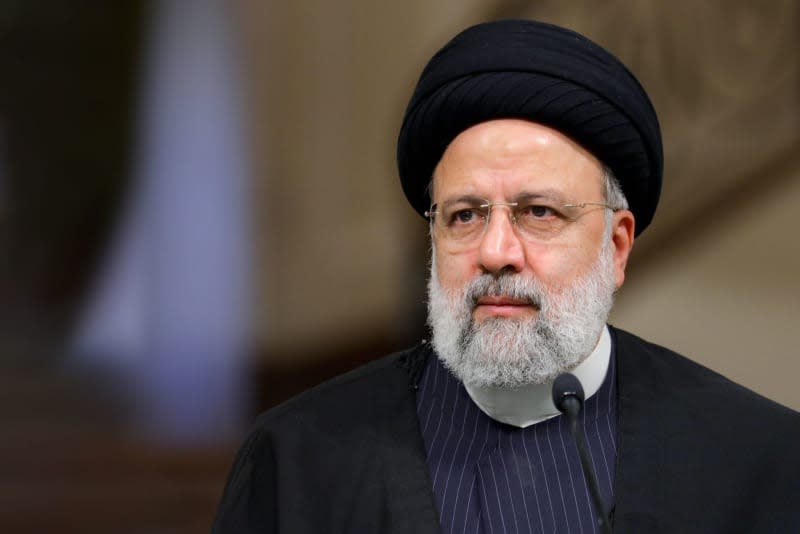Tehran repeats attack warning as Israel opens 'diplomatic offensive'

- Oops!Something went wrong.Please try again later.
- Oops!Something went wrong.Please try again later.
Iranian President Ebrahim Raisi has once again warned Israel against mounting a military counter-attack following Iran's recent air assault on Israel.
During a telephone call with Qatar's Emir Tamim bin Hamad Al Thani, Raisi warned that "the slightest action" by Israel against Iran's national interests "will have extensive and painful consequences." Details of the call were published on the web portal of Iran's presidential office on Tuesday.
Iran has recently warned Israel several times not to launch a military response to its large-scale attack, in which hundreds of drones and missiles were fired towards Israel on Saturday night.
The Iranian response to any further Israeli action would be "at least 10 times more drastic" than the first attack, the country's Security Council said in a press release.
In a telephone conversation with Raisi, Russian President Vladimir Putin called on all sides in the Middle East conflict to exercise restraint.
Putin expressed his hope that there would not be another round of confrontation, the Kremlin press service reported on Tuesday.
An escalation could have catastrophic consequences for the entire region, he said. Russia has not explicitly condemned Iran's missile attack on Israel.
Iran fired more than 300 rockets, cruise missiles and drones at Israel at the weekend. Israel and allied defences intercepted almost all of the incoming fire.
Iran said it was in retaliation for a suspected Israeli strike on an Iranian diplomatic compound in Syria that killed two Iranian generals and five officers.
So far, Iran has chosen the least severe form of punishment for Israel, the Iranian Security Council said in its press statement on Tuesday.
Israeli Foreign Minister Israel Katz launched what he called a "diplomatic offensive" against Iran following the attack. "This morning I sent letters to 32 countries and spoke with dozens of foreign ministers and leading figures around the world," Katz wrote on Tuesday on the social media platform X, formerly Twitter.
He called for sanctions to be imposed on Iran's missile programme and for the Islamic Revolutionary Guard Corps (IRGC) to be declared a terrorist organization. Katz believes these measures would help slow down and weaken Tehran.
"Iran must be stopped now - before it is too late," he wrote.
Katz wrote that Israel's diplomatic campaign against Iran should be flanked by a military response to Tehran's attack.
Israel's military leadership has signalled that it does not intend to let the attack go unanswered.
Israeli Ambassador to Germany Ron Prosor said the counter-attack would be on Iranian military facilities.
Israel will not attack civilian targets, although Tehran's attacks had certainly been aimed at civilian targets, Prosor told German broadcaster Welt TV on Tuesday.
The Israeli response would be "against these military facilities of the mullahs and the ayatollahs," Prosor said in German.
But he added that Israel would have to react. It is important for the region that this deterrence "is very clear."
While he emphasized Israel's determination to respond, Prosor declined to provide details. "When, where and how: That's something for our war Cabinet to decide," he said.
He called on Israel's allies to show understanding for the Israeli position and to impose stricter sanctions on Iran.
While Israel listened to its friends, it had to react to Iran's unprovoked attack with more than 300 missiles aimed at killing Israeli civilians, he said.

